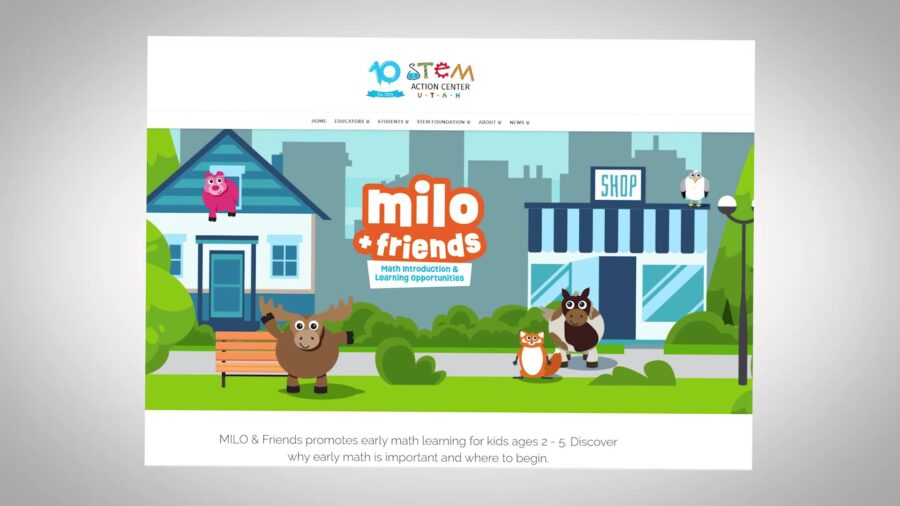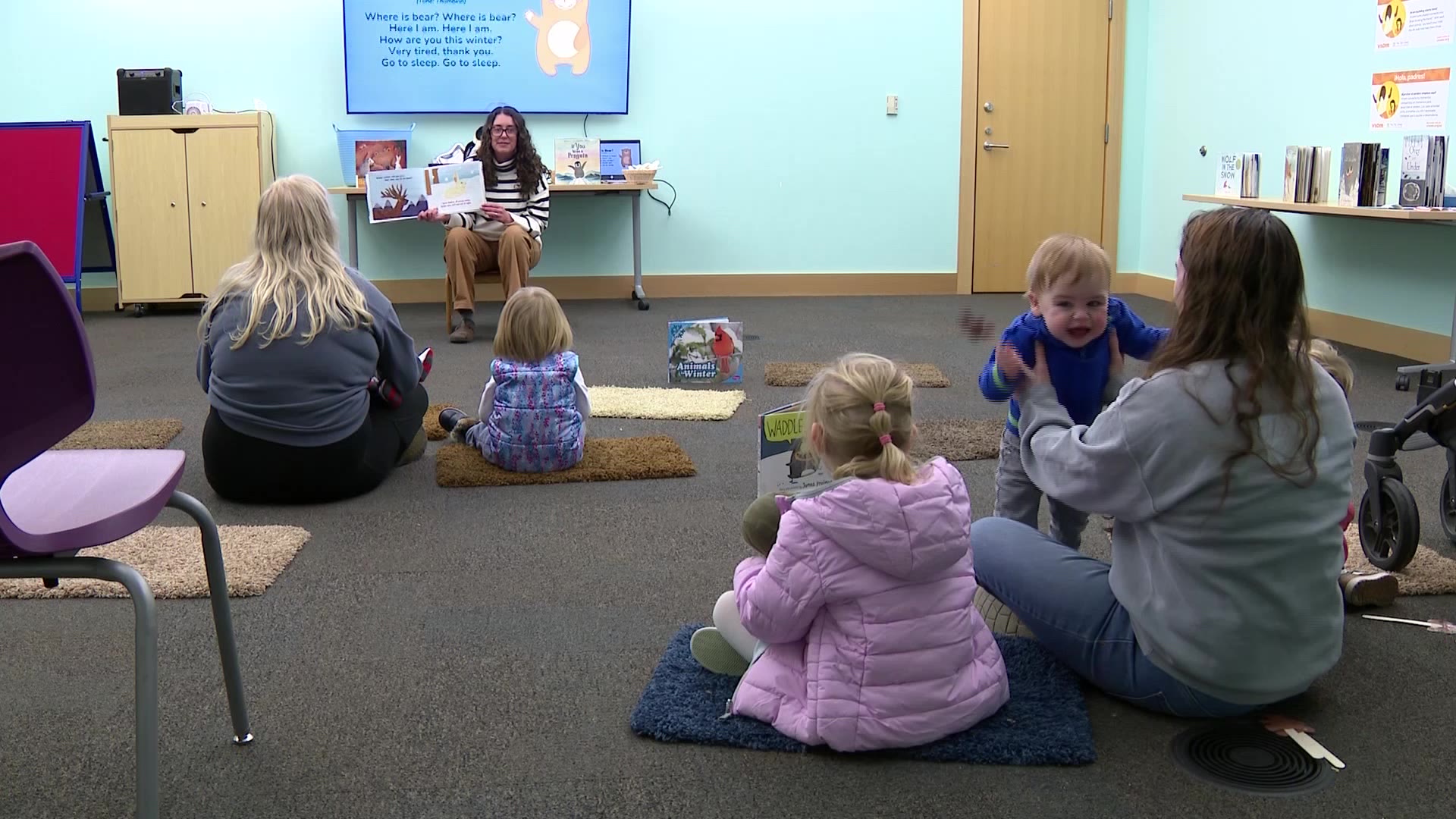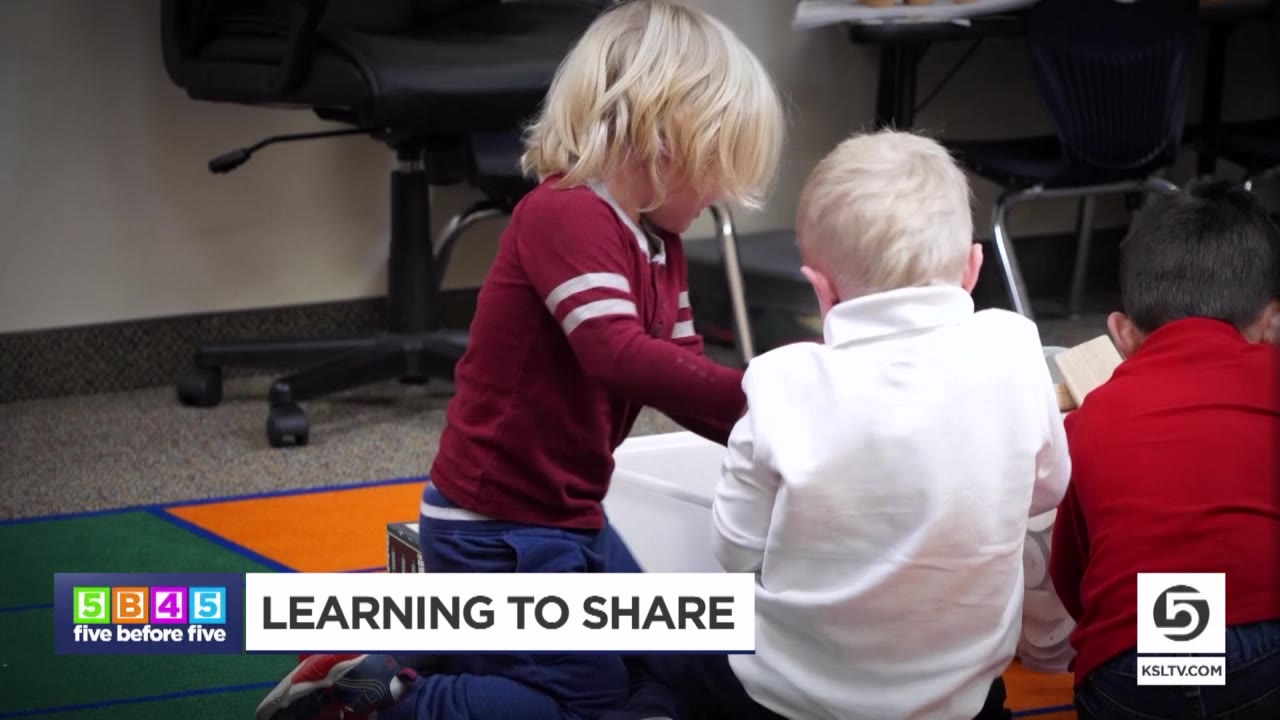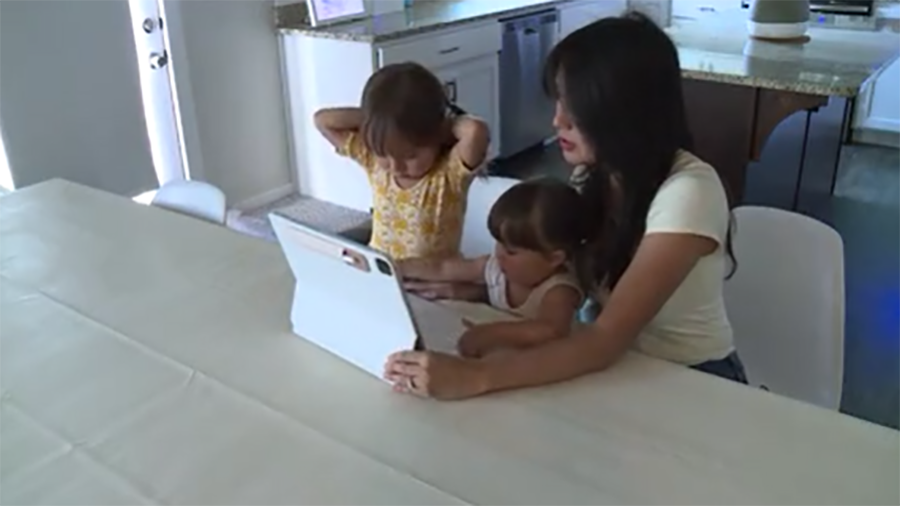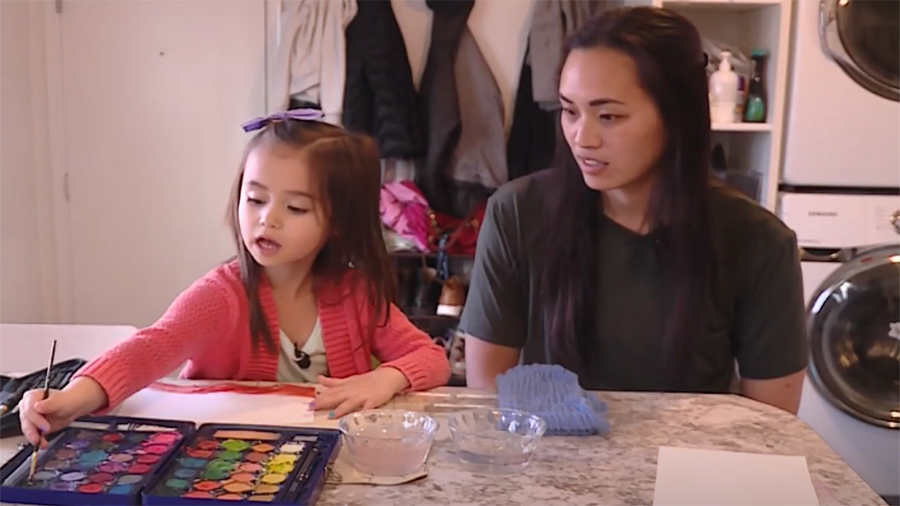Play Is Essential To Children’s Brain Development, Experts Say
Jul 15, 2021, 8:26 AM
PROVO, Utah — Parents have a big responsibility in the early years, teaching a child how to talk, read and count, but one child development specialist says the power of play in brain development is often overlooked.
Mom, Miriam Martin, has her hands full with two toddlers a year apart, 3-year-old Milo and 2-year-old Nova.
“They are always talking, pretending, playing, fighting — all the things toddlers do,” Martin said. “Now they’re best friends and they like doing everything together.”
At this age, she says play is about more than just having fun or getting their wiggles out.
“Their favorite thing to do right now is to play ‘store’ or to play like, ‘restaurant,'” she explained.
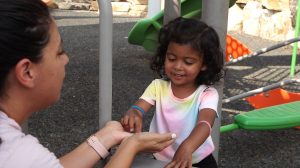
Miriam Martin says her kids’ favorite thing to do right now is play ‘store’ or ‘restaurant.’ Experts say this type of role-playing can expand a child’s mind and broaden their perspective. (Mike Sadowski)
Dr. Ilse DeKoeyer is a child development specialist at Help Me Grow, a United Way of Utah County-sponsored program, and an associate professor in psychology at the University of Utah. She said play is essential to a child’s development and allows a child to learn for themselves how things work.
“By playing they are much more actively connected to their world and to their learning,” she said. “And so it does help connect different areas of the brain.”
DeKoeyer said their form of play changes as children grow older, starting with babies. “As parents, we begin little games like, you know, ‘Where’s your nose, where’s your hands or your toes?’”

Nova Martin, 2, plays hide-and-seek with her mom and older brother. Research shows play allows a child to gain language skills, to learn how to interact with their peers and even to regulate their emotions. (Mike Sadowski)
She said children also begin symbolic play when they are fairly young. “That’s where they start to pick up a little cup and pretend they’re drinking from it or stir with a spoon and in a cup or whatever they’ve seen adults doing,” she described. “As they develop a little more cognitively, they explore more and more objects around them and use them in creative ways.”
As children mature they begin role-playing through play, pretending to be a teacher, doctor, police officer or parent, which expands their minds. “When they play the role, they have to take the perspective of that particular person,” DeKoeyer explained.
She said play can also enhance language skills, as was the case for Milo in speech therapy. “But play was what helped him just excel with his communication and actually start talking,” Martin said.
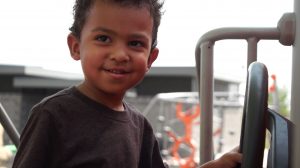
Milo Martin, 3, smiles as he spins a wheel on the playground. Research shows play allows a child to gain language skills, to learn how to interact with their peers and even to regulate their emotions. (Mike Sadowski)
“Children understand more complicated words more easily in their play,” DeKoeyer said.
Martin said she tries her best to let Milo lead a lot of their play interactions together, giving him the initiative. “Let them kind of show us what it is they want to do,” she said. No matter the activity, she engages in lots of verbal communication with him. “Milo, what are you doing? What am I doing? What color is that?”
DeKoeyer said play also helps a child learn to interact and negotiate with others. “I think learning that you might want to do something, but that doesn’t mean anybody else wants to do that– and it’s learning that patience,” Martin said.
“So they have to express what they want, but they have to listen to what the other person wants,” DeKoeyer added.

Miriam Martin holds up her 3-year-old son Milo Martin to talk into a microphone at the park. Martin says play in speech therapy was essential to Milo’s ability to better communicate and start talking more. (Mike Sadowski)
Play can also help a child regulate feelings. “They can learn reasons why we feel certain emotions, you know, like, ‘Oh, you took that away, that makes me mad,’” she said.
“Milo will say he’s sad because no one’s not playing with him or Nova will tell me she’s mad because Milo did something, and so that’s been really cool to see them express that to me,” Martin said.
She said this is especially important when play goes wrong.
“We talk everything out. ‘You know, what happened? Did it hurt? Where does it hurt? OK. Do you want to keep playing?” Martin said.
DeKoeyer said rough and tumble play isn’t necessarily a bad thing though. She said it can teach children how to decompress after a stressful or heightened experience.
“And learning how to get really riled up and then take a break and calm down is such an important skill for our entire life,” DeKoeyer said.
“It does show them like how to calm down and switch gears a little bit,” Martin said.
DeKoeyer believes the biggest thing parents can do is simply allow for play. “Allowing space, time, messiness, unpredictable events,” she said. She says when a child is given the time and freedom, they will find something to do.
“Sometimes I feel like my house looks kind of crazy because we have toys, you know, in their room. We have toys in the living room,” Martin said.
DeKoeyer said play doesn’t have to be formal. “Encourage parents to also integrate play into their life. It’s not some separate activity,” she said.
Martin finds she can incorporate play into nearly every daily routine. “Even like bath time, snack time … you can kind of mix play in there for everything even naptime, like singing songs to take a nap, finger plays,” she suggested.
She said this helps her make the most of everyday events to help their kids grow. “Watching those little changes and milestones is the coolest thing,” Martin said.
DeKoeyer said you don’t need more toys to help your kids play. Even simple things like building a fort out of blankets or giving them cardboard boxes can stimulate creativity. For more ideas on how to help your child learn through play, check out 5B45kids.com.


